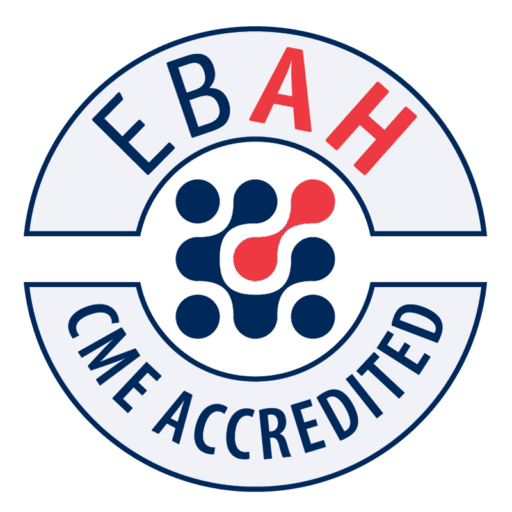EHA Research Conference 2026 (EHA ReCon 2026)
EHA is proud to announce the fourth edition of the EHA Research Conference, titled ‘From cradle to grave: normal and malignant hematopoiesis in young and aged settings.’
Dates: March 23–26, 2026
Location: Espoo, Finland
Chairs: Dominique Bonnet, Michael Milsom, Katherine Bridge, Jennifer Trowbridge, Olaia Naveiras, Anna Bigas, Mikko Myllymäki, and Florian Heidel
Registration for EHA ReCon 2026 is open. For full details, visit our registration and accommodation page.
Register Now
Overview
‘EHA ReCon’ is a great opportunity for researchers from all over the world who are deeply invested in the field of hematology. It aims to advance both basic and translational research.
Attendees will benefit from an intimate but focused setting that fosters in-depth discussions, networking, and collaboration.
Spanning 3.5 days, this format sets the conference apart from the broader, more clinically-oriented EHA Congress.
Key benefits
- In-depth learning: Hear about the latest research on mechanisms that influence hematopoiesis throughout development and aging.
- Expert insights: Engage with leading experts and innovators in the field.
- Networking opportunities: Connect with peers and thought leaders during informal as well as more structured session.
- Active participation: Present your research, participate in discussions, and take the opportunity to collaborate on groundbreaking ideas.
- Comprehensive program: Enjoy a balanced mix of presentations, poster sessions, workshops on writing and publishing in medical journals, and social activities.
Target audience
This conference is designed for basic or translational researchers in hematology with an interest in:
- Normal or malignant hematopoiesis
- How hematopoiesis is regulated in different stages of life
Program
The topics that will be covered are:
- Clonal dynamics during development and aging
- Inherited predispositions for early and late onset hematologic disease
- Immune dysfunction in early, intermediate, and later life
- Stress hematopoiesis (including inflammation): from hematopoietic specification through to old age
- Age-dependent roles of the hematologic microenvironment
- Hematologic malignancies: from childhood through to old age
EHA ReCon 2026 promises significant advancements in the understanding of hematopoiesis and its disorders. It will achieve this by bringing together top researchers and early-career investigators through:
- Invited speaker lectures
- Oral abstract presentations
- Poster pitches
- Poster walks
For further details, visit the meeting program page.
Learning objectives
After attending this meeting, participants will be able to:
- Gain advanced knowledge: A deep dive into hematopoiesis and its regulation throughout life and diseases
- Receive research inspiration: Exposure to cutting-edge research and methodologies
- Develop new connections: A broadened network of peers and experts for future collaborations
- Implement practical applications: Understanding of how to apply new findings to ongoing research
- Harness presentation experience: Opportunities to present research findings and receive feedback from leading experts
Registration
Registration is open. For full details, visit our registration and accommodation page.
Abstract submission
Round two of abstract submission is open. For full details, visit our abstract submission page.
Abstract submission is an important part of this meeting, and a selection of accepted abstracts will be presented as an integral part of the program.
Accepted abstracts also have the opportunity to present either orally or with a poster, for which active poster walks will be organized.
Venue
DIPOLI – Aalto University
Otakaari 24, Otaniemi,
02150 Espoo,
Finland
Sponsorship
There are various opportunities to support this meeting. For more information, visit our sponsorship page.
EBAH CME accreditation
Continuing Medical Education (CME) is widely accepted to encourage individual practitioners to maintain and develop professional knowledge and skills keeping up-to-date with latest developments within the field.
This meeting will be accredited by the EBAH system. Participants of this meeting are eligible to receive one Continuing Medical Education (CME) credit point for every hour of accredited activity from the EBAH system. For more information about EBAH accreditation, please visit the EBAH website.
